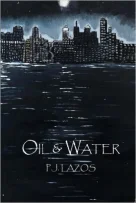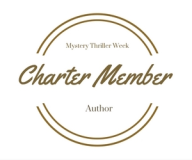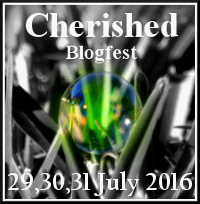I will make no attempts at tomfoolery or to convince you as to the veracity of something which I am not — a poet. Truth is, I am a shallow well when it comes to the art of poetry, much as I’d wish it to be different. I’ve tried my hand, as they say, but what I’ve produced is so disjointed and tone deaf I can’t make a case for it. So I will stick to what I know and leave the poetry to the experts, one of them being my fellow writer and blogging friend, Geoff LePard.
Geoff is a lawyer, like me, and a writer, like me, but unlike me, he has a way with a sonnet, a limerick, a free verse, even a haiku — a gift he inherited from his father — and which he continues with a renewed vigor now that he’s retired from the law. Spurred on by ongoing convos with his adult children, as you will read below, Geoff has set out to capture in prose the essence of a climate in crisis. I’ve no doubt you’ll be delighted.
Geoff’s latest book, The Sincerest Form of Poetry, and Geoff’s other books are all available  on Amazon whose carbon footprint we will hold off on discussing until another day. At the end of our poetry session, you will find links to all of Geoff’s books. I urge you to take a look around. Apprenticed to My Mother is my personal favorite.
on Amazon whose carbon footprint we will hold off on discussing until another day. At the end of our poetry session, you will find links to all of Geoff’s books. I urge you to take a look around. Apprenticed to My Mother is my personal favorite.
Forthwith on behalf of the environment, and with a zeal and a steadfastness of purpose that the boomer generation forgot it had, is the beautiful poetry of Geoff LePard with an intro by Sir Geoff himself.
My Poetry
All of life in one easy couplet
To write poetry I need inspiration. Often that comes from my appreciation of the craftsmanship of other, better poets, whose skills I aspire to emulate. For this anthology, I have chosen two such sources: in part one, the search for Britain’s favourite poem led to the publication of the top 100 and I have used a number of these to craft my own take on those beautiful and inspirational works; in part two, my love of the sonnet form, fostered by reading Shakespeare’s gems has provided a selection covering many topics and themes. I hope you enjoy reading them as much as I enjoyed creating them.
When I began writing poetry I felt the principle driver was emotion. It was the difference between an urge to write – prose – and a need to write – poetry. I sought out subjects with which I had a passionate interest and began to explore the different subjects in poetry form.
It didn’t take long before the issue of climate change drove me to poetry. It is something I feel compelled to write about, but often times my frustration at the lack of political will and understanding leaves me over-articulating my thoughts. It is easy for me to get on a roll and keep rolling, often steamrolling my opinions onto others.
In poetry’s necessarily constrained forms, I found a place to curtail such ‘exuberance’ and thus make my points in a more considered way. This was especially so with the sonnet in particular, what with its rigidities of length, rhyme and meter. By accident, I stumbled upon a method of conveying my feelings without the customary exponential growth in verbosity that would accompany my usual considered delivery rant.
This poem, which appears in my new book, The Sincerest Form Of Poetry first saw the light of day in 2008.
A Springless Future
Cold Jack, content and job well done, creeps home
Allowing Spring her turn to warm the earth.
Crocus tongues push out through softening loam
As glass-eyed shepherds watch their flock give birth.
We, unplucked youth, prime cocked with urgent sap,
Feel the tug of Nature’s call to breed.
Like sheep, we follow Her bewitching map
To plant, in fertile earth, our febrile seed.
Yet somewhere Nature’s diverse scheme is lost;
Our black-fueled lust sears seasons into one.
Our greed neuters Jack; he’s become a ghost,
Sharp fingers culled by a remorseless sun.
Why should our lambs breed, after this breach of trust?
We’ve fried this once green Earth, turning it to dust.
***
Its genesis was a family dinner. My son was 18, my daughter 15 and we had been discussing the latest egregious example of political feeblemindedness. At one point, my son challenged me as a representative of my generation to ‘stop bleating and do something because you’ve had the goodies and left us the mess.’ I had to agree and we batted back and forward how that might evolve. Then my daughter chipped in, wondering whether her generation would bother to have children given how bleak the future seemed.
That brought me up short. Over the next few days, I struggled to find a way of capturing the essence of what she’d said. It finally led me to write a very first draft version of what became this poem. After chipping and chiseling away at it, I was quietly pleased with the result and the sentiments I’d captured. The increasing lack of the customary distinctions between the seasons here in the northern hemisphere was apparent to all. Yet, nature hasn’t let us off ice-bound winters to bequeath us balmy Mediterranean temperatures, but rather has upped the dial to gas mark seven and challenged our Victorian drains with regular pulses of monsoon rain. Inevitably I focused on our obsession with hydrocarbons, laying the blame at that firmly in that direction.
It works as a piece of propaganda, for sure. It turns on that rather glib and frankly simplistic assertion and neatly makes its point.
But the more times I re-read it, the more I realised I’d written the wrong poem. It never totally worked as I’d originally intended. For the poem I sought to pen was aimed at addressing my daughter’s concerns, her personal view on how she would deal with such a changing world and find her place within it. What I’d written just wasn’t about her at all as it should have been.
So I took the essential elements and recast my net to look for the correct way of expressing the depressing situation from her view – or maybe it would be better to say, from how I perceived her view. Thus, six years later the next poem was the result. And because it was for and from her, it contains one essential element with which the young constantly surprise me when viewing the planet: hope. She’s not Greta [Thunberg], but she believes in the power of the collective to deliver.
A Sonnet For Our Time
Beat of a butterfly wing, rippling out;
Hope spills its dry seed, craving a drop
Of Humanity. From such scintilla a crop
May shoot, stalling the crippling doubt
Which is the lot of the young. Untrammelled
By life’s cares, she hesitates. A tasting step,
Toes tentative, muscles taut, not yet adept
At the world’s ways. Her chest is pummelled
By a heart, so pure and love-absorbent,
Caressing with her eyes, embracing those
Who reciprocate her joy, who will choose
Her above the clashing cymbals and discordant
Noise. Fresh youth will archive veneration,
Reel in tomorrow without hesitation.
***
She knows, like her brother these days, like so many others of her generation that it’s pointless waiting for us to perform what should have been our basic duty – to hand on the planet in a better condition than we received it. Rather than, as he did at 18, get angry at our failures, they are willing to try and see if there’s a way to shift the dial and not wait for their turn to run things. If that means appreciating her father has feet of clay at an earlier time than I did of my parents then so be it. There really is no time to lose, just as much as there really is no planet B.
Geoff Le Pard started writing to entertain in 2006. He hasn’t left his keyboard since. When he’s not churning out novels he writes some maudlin self-indulgent poetry, short fiction and blogs at geofflepard.com. He walks the dog for mutual inspiration and most of his best ideas come out of these strolls. He also cooks with passion if not precision.
My Father and Other Liars is a thriller set in the near future and takes its heroes, Maurice and Lori-Ann on a helter-skelter chase across continents.
Dead Flies and Sherry Trifle is a coming of age story. Set in 1976 the hero Harry Spittle is home from university for the holidays. He has three goals: to keep away from his family, earn money and hopefully have sex. Inevitably his summer turns out to be very different to that anticipated.
In this, the second book in the Harry Spittle Sagas, it’s 1981 and Harry is training to be a solicitor. His private life is a bit of a mess and he’s far from convinced the law is for him. Then an old acquaintance from his hotel days appears demanding Harry write his will. When he dies somewhat mysteriously a few days later and leaves Harry in charge of sorting out his affairs, Harry soon realises this will be no ordinary piece of work. After all, his now deceased client inherited a criminal empire and several people are very interested in what is to become of it.
The third instalment of the Harry Spittle Sagas moves on the 1987. Harry is now a senior lawyer with a well-regarded City of London firm, aspiring to a partnership. However, one evening Harry finds the head of the Private Client department dead over his desk, in a very compromising situation. The senior partner offers to sort things out, to avoid Harry embarrassment but soon matters take a sinister turn and Harry is fighting for his career, his freedom and eventually his life as he wrestles with dilemma on dilemma. Will Harry save the day? Will he save himself?
Life in a Grain of Sand is a 30 story anthology covering many genres: fantasy, romance, humour, thriller, espionage, conspiracy theories, MG and indeed something for everyone. All the stories were written during Nano 2015
Salisbury Square is a dark thriller set in present day London where a homeless woman and a Polish man, escaping the police at home, form an unlikely alliance to save themselves.
This is available here
Buster & Moo is about about two couples and the dog whose ownership passes from one to the other. When the couples meet, via the dog, the previously hidden cracks in their relationships surface and events begin to spiral out of control. If the relationships are to survive there is room for only one hero but who will that be?
Life in a Flash is a set of super short fiction, flash and micro fiction that should keep you engaged and amused for ages
Apprenticed To My Mother describes the period after my father died when I thought I was to play the role of dutiful son, while Mum wanted a new, improved version of her husband – a sort of Desmond 2.0. We both had a lot to learn in those five years, with a lot of laughs and a few tears as we went.
Life in a Conversation is an anthology of short and super short fiction that explores connections through humour, speech and everything besides. If you enjoy the funny, the weird and the heart-rending then you’ll be sure to find something here.
When Martin suggests to Pete and Chris that they spend a week walking, the Cotswolds Way, ostensibly it’s to help Chris overcome the loss of his wife, Diane. Each of them, though, has their own agenda and, as the week progresses, cracks in their friendship widen with unseen and horrifying consequences.
Famous poets reimagined, sonnets of all kinds, this poetry selection has something for all tastes, from the funny, to the poignant to the thought-provoking and always written with love and passion.
Geoff Le Pard’s Amazon Author Page
***
Thank you, Geoff, for your wit, wisdom, and inspiration. As you point out, the autumn of the earth is upon us. Time for us to get busy.
pam lazos 10.18.20

















Reblogged this on Momentary Lapse Of Sanity.
LikeLiked by 1 person
Thank you again!🙏
LikeLike
tx so much, Pam, for a lovely post & for introducing us to Geoff 🙂
LikeLiked by 1 person
My pleasure!
LikeLiked by 1 person
Isn’t it fascinating how something like a little dialogue with the kiddos can lead to such powerful words! Yet another lovely interview, Pam, and many thanks for sharing, Geoff!
LikeLiked by 2 people
My pleasure, Jean, as he is quite a treasure (a little poetry humor).😂😘
LikeLiked by 2 people
Thank you Jean for your kind comments
LikeLiked by 2 people
A Springless Future is so timely. Even this morning I read (unfortunately just after waking up) a report on how arctic waters are not yet freezing – this is the first time this hasn’t happened by late October. Cold Jack’s arrival is later each year…
LikeLiked by 2 people
And now the wildfires in Colorado. Every day, another environmental mess.
LikeLiked by 1 person
I hate that, the news waking you up with the jolt like that. I must do a happy polar bear poem next. If only… thanks so much for the lovely comment.
LikeLiked by 2 people
A very nice post , Pam. Very interesting too. I can definitely recommend Geoff’s poetry he will have you laughing one minute, crying the next then suddenly his wisdom/ honesty will bring you up short 💜
LikeLiked by 4 people
What a great description, Willow! Thanks for stopping by. 😘
LikeLiked by 1 person
I enjoyed visiting, I will be back
LikeLiked by 1 person
🙏🥰
LikeLike
Geoff certainly is an accomplished man!
LikeLiked by 3 people
That he is!
LikeLiked by 1 person
Too kind by half…. thanks Jan
LikeLiked by 2 people
Your son´s comment, ´you’ve had the goodies and left us the mess´ rings true. Both poems are excellent and say what many of us think. Well done!
LikeLiked by 2 people
I love that line, too, Darlene.
LikeLiked by 1 person
He knows where to put in the knife!!
LikeLiked by 1 person
🤪
LikeLiked by 1 person
Pingback: How To Be A Green Poet #booklaunch #booktour #poetry | TanGental
What a lovely post, Pam and Geoff. Love the way you’ve put the poems in context, and what a beautiful image: ‘…she hesitates. A tasting step/Toes tentative, muscles taut, not yet adept..’
LikeLiked by 3 people
Ah, you have the poetry gene, Cath. 🤓
LikeLiked by 1 person
The poetry-appreciation one, at any rate. 🙂
LikeLiked by 1 person
😂
LikeLiked by 1 person
thank you Cath. I’m glad you enjoyed this. It’s always taken me a long time to reach ay confidence in my poetry. Often I think I’ve got it and then, poof! It’s obviously wrong. So when someone else enjoys some part I think, well, maybe I’m on the right track
LikeLiked by 4 people
☺️
LikeLiked by 1 person
Touching and heartbreaking! Good writing!
LikeLiked by 2 people
Thanks for stopping by, Ka.
LikeLike
Thank you Ka, most kind
LikeLiked by 2 people
It’s hard not to be drawn to someone who seems to love nature so. Thanks for sharing this, Pam.
LikeLiked by 2 people
Thanks for stopping by, Jacqui. 🤓
LikeLike
Thank you Jacqui
LikeLiked by 1 person
Abso pleasure. i really enjoyed this post and the setting of the poetry in the family context
LikeLiked by 2 people
Pam, thank you so much for hosting this I’m much indebted.
LikeLiked by 3 people
My pleasure, Geoff. Write on! 😘🙌
LikeLiked by 1 person
Very interesting post. Enjoyed reading where the poetry came from and why.
LikeLiked by 2 people
Thank you for stopping by, Lady Shey. 🥰🙏💃
LikeLiked by 1 person
thanks for coming by and reading, Shehanne. Most touched
LikeLiked by 1 person
Seriously, it is a great post. I enjoyed reading every bit.
LikeLiked by 2 people
❤️
LikeLiked by 1 person